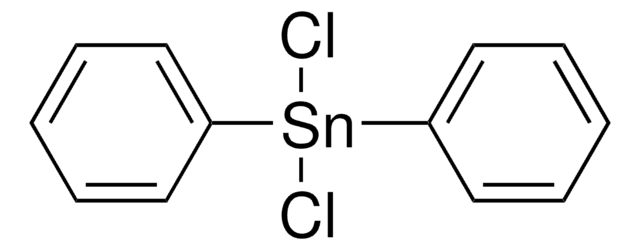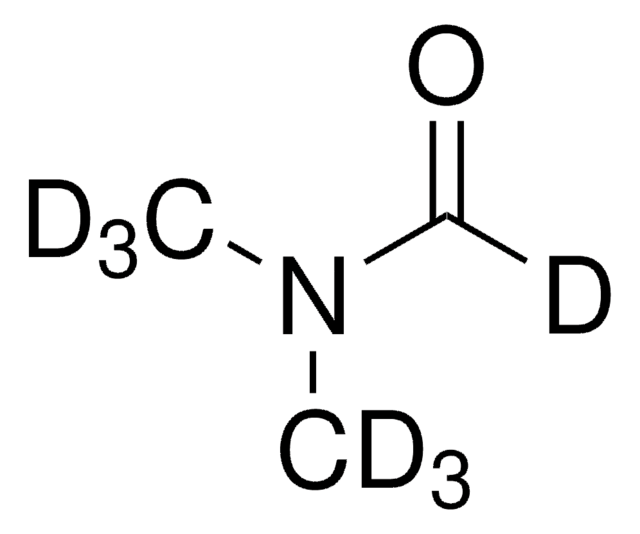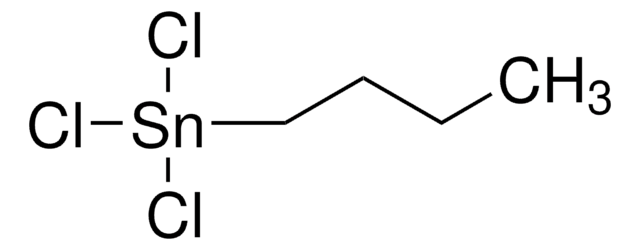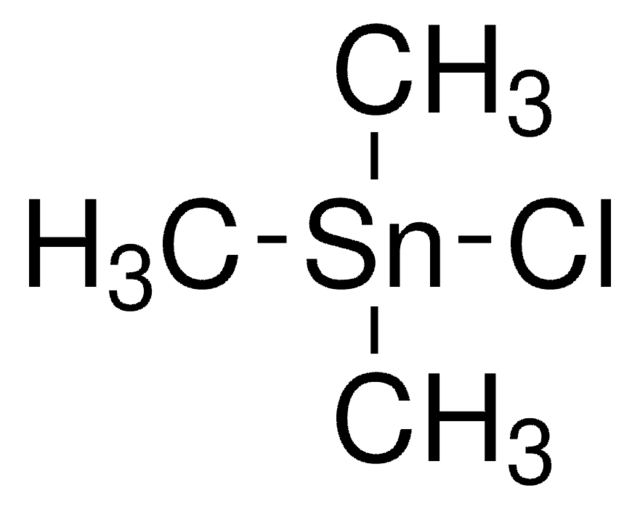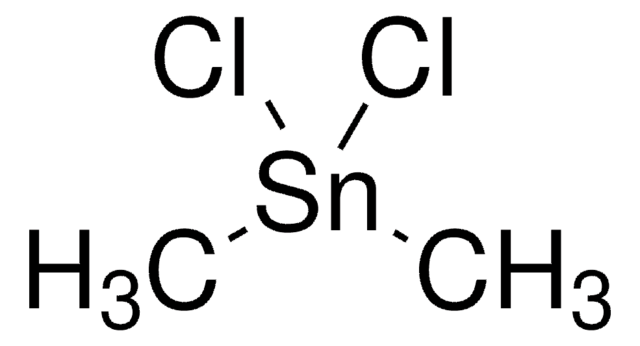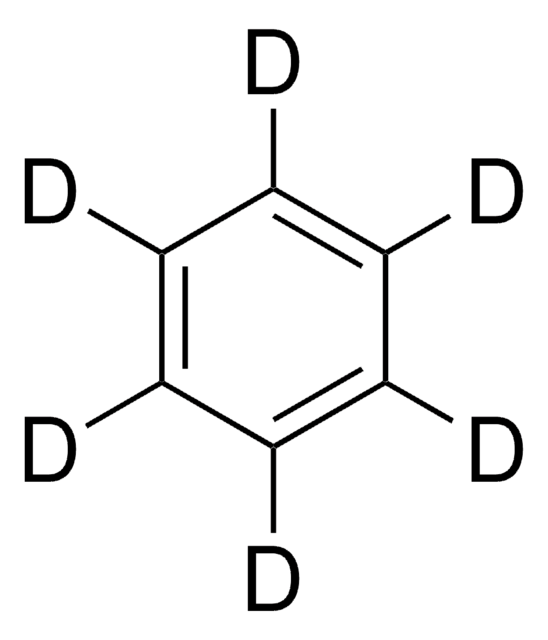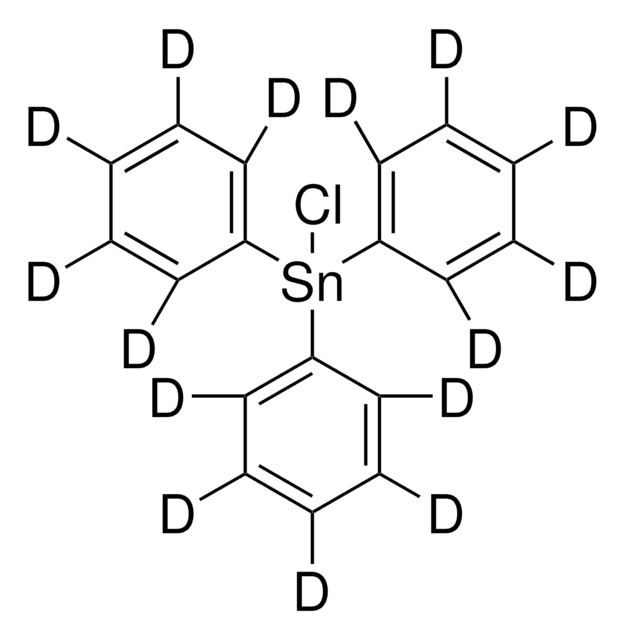277231
Phenyltin trichloride
98%
Sinónimos:
Trichlorophenylstannane
About This Item
Productos recomendados
Nivel de calidad
Ensayo
98%
Formulario
liquid
índice de refracción
n20/D 1.585 (lit.)
bp
142-143 °C/25 mmHg (lit.)
densidad
1.839 g/mL at 25 °C (lit.)
cadena SMILES
Cl[Sn](Cl)(Cl)c1ccccc1
InChI
1S/C6H5.3ClH.Sn/c1-2-4-6-5-3-1;;;;/h1-5H;3*1H;/q;;;;+3/p-3
Clave InChI
UBOGEXSQACVGEC-UHFFFAOYSA-K
Categorías relacionadas
Aplicación
- In the preparation of organotin(IV) complexes as potent antimicrobial agents.
- As a reactant in the Stille coupling reaction catalyzed by peptide-templated Pd nanoparticles.
- As a tin (Sn) source in the synthesis of tin-doped TiO2 photoanodes applicable in dye-sensitized solar cells.
Palabra de señalización
Danger
Frases de peligro
Consejos de prudencia
Clasificaciones de peligro
Aquatic Acute 1 - Eye Dam. 1 - Skin Corr. 1B
Código de clase de almacenamiento
8A - Combustible corrosive hazardous materials
Clase de riesgo para el agua (WGK)
WGK 3
Punto de inflamabilidad (°F)
235.4 °F - closed cup
Punto de inflamabilidad (°C)
113 °C - closed cup
Equipo de protección personal
Faceshields, Gloves, Goggles, type ABEK (EN14387) respirator filter
Elija entre una de las versiones más recientes:
¿Ya tiene este producto?
Encuentre la documentación para los productos que ha comprado recientemente en la Biblioteca de documentos.
Los clientes también vieron
Nuestro equipo de científicos tiene experiencia en todas las áreas de investigación: Ciencias de la vida, Ciencia de los materiales, Síntesis química, Cromatografía, Analítica y muchas otras.
Póngase en contacto con el Servicio técnico